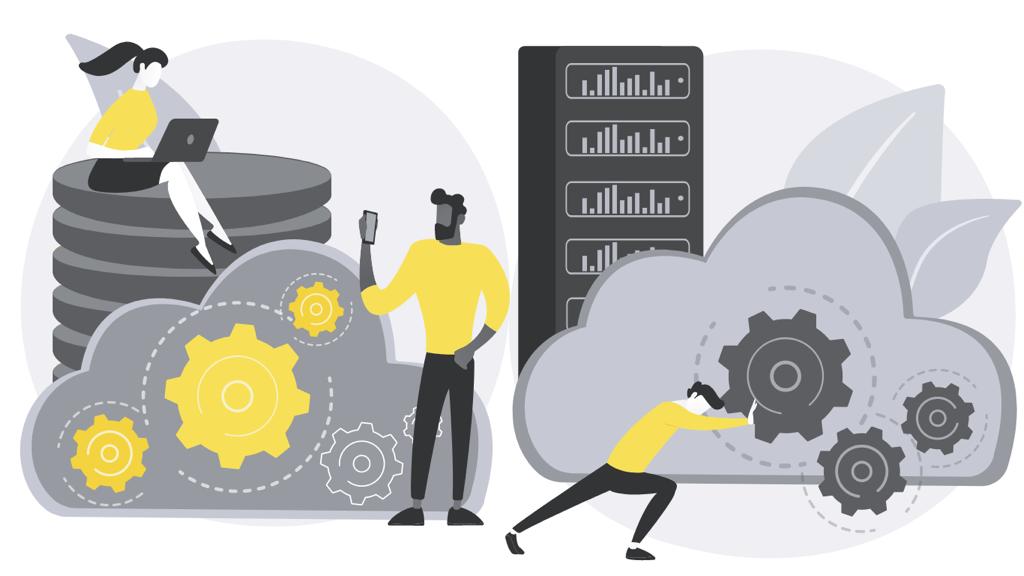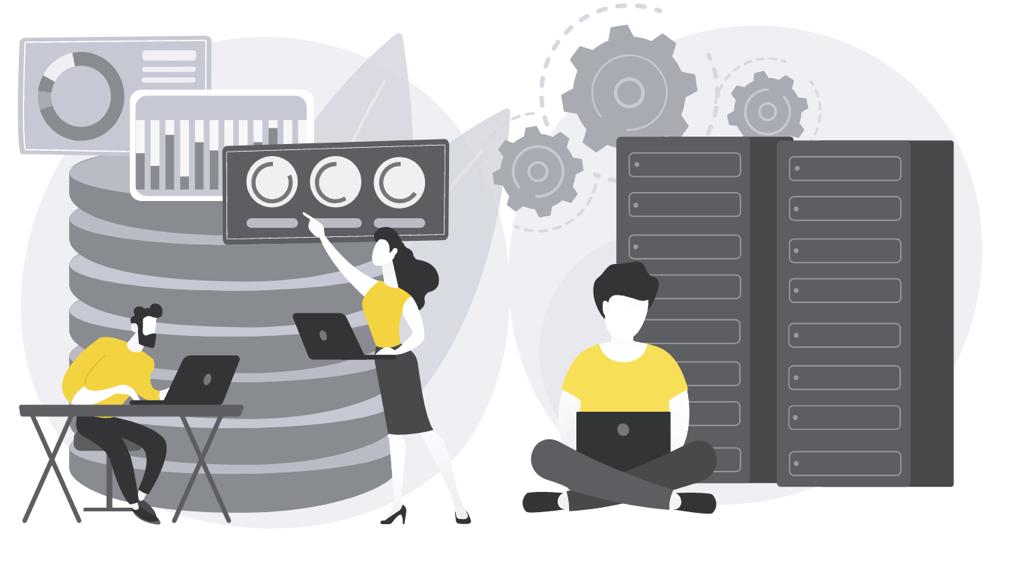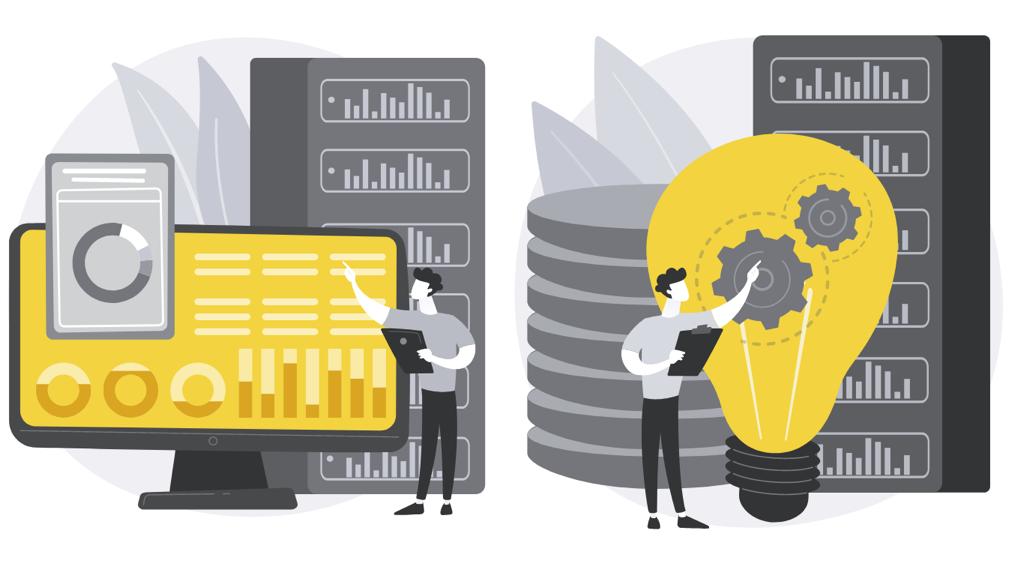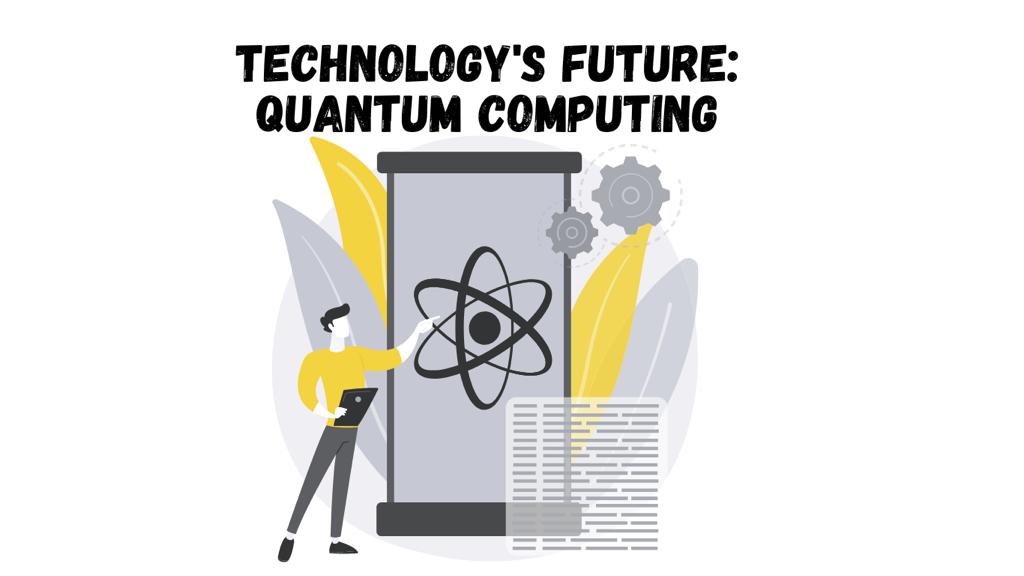
Introduction
The audience is aware that quantum computing is the direction of data processing. For a good reason, tech behemoths like IBM, Google, and Microsoft are vigorously researching quantum computing technology. Quantum computing will reinvent what is possible in the disciplines of artificial intelligence and machine learning thanks to its enormous speedups and power savings.
Concerning the implications of quantum computing for artificial intelligence, there is a worrying dearth of discussion. The ramifications of a quantum computer for artificial intelligence will be discussed in this article, and the need for greater discussion.
In a limited sense, quantum computing is already here. But in the next five to ten years, it might break into the mainstream, much like how traditional computers did in the 1970s and 1980s when they went from being used just in research labs and considerable enterprises to be used in households and businesses of all sizes.
1. What is Quantum computing?
The principles of quantum mechanics are used to operate in the field of quantum computing. Data is encoded in bits, which can only be either 1 or 0 in traditional computing. On the other hand, qubits, which can be both 1 and 0, are used in quantum computing. Due to the ability to perform numerous calculations at once, quantum computing is strong. It is also the reason why data science and artificial intelligence are considered to have a bright future.
2. What Distinctions Exist Between Classical and Quantum Computing?
While classical computers use either 1 or 0, quantum computers use qubits, both 1 and 0 simultaneously. This is the key difference between classical and quantum computing. Qubits are used in quantum computing, which makes use of the properties of quantum mechanics to process data. These can represent a mixture of 1 and 0, enabling the execution of numerous calculations at once. Due to the usage of qubits, quantum computers are not as prone to errors as conventional computers. For delicate applications, like those employed in artificial intelligence, this increases their dependability.
Quantum computers are effective for simulating complicated systems and machine learning tasks because this enables them to investigate numerous potential solutions to a problem at once.
3. Pros. and Cons. of quantum computing
3.1. Pros. of Quantum Computing
Quantum computing has several benefits over traditional computing. The ability of quantum computing to solve problems significantly more quickly than traditional computers is one of its key advantages.
This is due to a phenomenon known as “quantum parallelism,” which enables a quantum computer to simultaneously investigate numerous potential solutions by combining the characteristics of a particle and a wave.
Quantum computers are also immune to noise and capable of operating in hostile environments, making them ideal for use in machine learning and artificial intelligence applications. The ability of quantum computers to outperform flaws in conventional computing systems is another benefit.
Finally, the ability of quantum computers to store and analyse huge volumes of data is crucial for the development of machine learning and artificial intelligence models.
3.2. Cons. of Quantum Computing
Despite all of its advantages, there are legitimate reasons why people are hesitant to experiment with a quantum computer. A quantum computer is extremely challenging to design, construct, and programme due to its resilient nature. It should come as no surprise that training an AI model to recognise items in an image will be challenging.
Quantum programmes and computers suffer from flaws, loss of quantum coherence, and errors in noise as a result of their complexity. And as the number of qubits increases, it gets harder and harder to keep them isolated from their surroundings, and decoherence is inevitable, which introduces a lot of errors.
Therefore, the qualities that make quantum systems strong also make them fragile and lead to the collapse of the entire system.
4. Why will artificial intelligence be more advanced thanks to quantum computing?
Bits in traditional computing can only be either one or zero. However, the quantum computer opens up a whole new world of possibilities for processing power since a quantum bit or qubit can be both one and zero at the same time.
Due to their ability to test multiple solutions at once, quantum computers are substantially faster than traditional computers at solving problems. Additionally, they are not restricted by the same restrictions as conventional computers, which enables them to resolve issues that are now intractable.
Due to this, the quantum computer is the ideal technology to drive artificial intelligence. AI systems need a lot of computational capacity to handle the large volumes of data they process. AI may be able to realise its full potential if quantum computers can supply that power.
5. Actual Applications
This section demonstrates several practical, real-world uses for quantum computing in AI that have the potential to alter the course of history.
1. Financial services and healthcare: In this industry, quantum computing and AI are working together to solve many complex problems quickly and precisely.
2. Resolving Mathematical Issues: Mathematical, scientific, and historical research encompasses a wide range of topics. It can be resolved significantly faster with the use of quantum computers. For instance, if a mathematical problem takes a classical computer 10 years to solve, a quantum computer using AI can do so in less than a month.
3. Fraud Detection & Cybersecurity: Quantum computers are assisting organisations in enhancing their protection and boosting internet security with the aid of AI algorithms.

6. Why are many people still ignorant of quantum computing?
There are a few reasons why the AI and ML communities haven’t talked about quantum computing more. Uncertainty about how to incorporate quantum computing into one’s job is one potential. Another theory is that people are holding off on becoming too excited about quantum computers until there is a more clear plan for how they will be employed because the potential applications are so vast and far-reaching.
7. What potential uses for quantum computing are there in the future?
1. Optimization
Global minimal point solutions are sought for by many optimization issues. The optimization issues might be resolved faster using quantum annealing than with supercomputers.
2. Big data/machine learning
Researchers in machine learning and deep learning are looking for effective techniques to build and evaluate models using massive amounts of data. Training and testing can be accelerated with the use of quantum computing.
3. Simulation
To foresee potential mistakes and take appropriate measures, simulation is a beneficial tool. Complex systems can be simulated using quantum computing techniques.
4. Physical Sciences
The computations of the intricate interactions of atomic structures place restrictions on chemistry and material science. A quicker method to represent these interactions may be found in quantum solutions.
Future quantum computing will have several uses that are sector-specific.
8. What are the main obstacles to quantum computing in the future?
1. Choosing a strategy that will work
The application of quantum computing takes a variety of forms. Trial and error of all possible strategies will be expensive in terms of both time and money because quantum computing and quantum circuits require substantial investment expenditures. Various strategies for various applications appear to be the most likely solution at this time.
Quantum annealing, analogue quantum models, and universal quantum gate models are some of the current methods being investigated by QC businesses.
2. Producing error-correcting, reliable quantum processors
It is necessary to carry out manipulations at lower scales, often smaller than an atom, to benefit from the features of quantum mechanics. Problems with stability and error verification arise at small sizes.
Error correction in qubits, according to quantum experts, is more important than the total amount of qubits acquired. Complex issues continue to be difficult to resolve because qubits are difficult to regulate precisely.
3. keeping the extremely challenging operating circumstances
IBM maintains the temperature at 15 milliKelvin or lower to promote stability and control of qubits and prevent environmental noise or heat from exciting superconducting qubits. Additionally, maintaining the temperature at such low levels poses stability issues. Operating conditions must be addressed for a quantum computer or processor to be widely commercialised.
Researchers studying quantum technology are attempting to employ quantum processors at higher temperatures. Recently, the highest operational temperature was attained. The maximum operating temperature was documented to be 1 Kelvin or -272 degrees. However, running these systems at ambient temperature seems to take longer.
Stability and error-correction issues depend on technological advancements, research funding, and advances in quantum physics. Various firms are attempting various strategies to acquire the most affordable quantum computing technology. It will take some time to determine which strategy will be successful in various situations.

9. Quantum Revolution
Quantum computing applications are continuously being investigated and tested. It’s feasible that in the future, quantum computers will be able to address previously intractable issues. They may, for instance, be used to model molecules or make predictions about how a chemical will act in various scenarios.
Also, keep in mind that a quantum computer is simply more powerful than a conventional computer; it is not faster. This means that a programme will “execute” on a quantum computer in the same amount of time as it would on a conventional computer, but with significantly better outcomes due to its greater power.
Powerful computers known as quantum computers use the ideas of quantum mechanics to operate. They represent data using qubits rather than bits and can possibly access more than two values simultaneously. All of the current forms of encoding and encryption will be vulnerable to quantum computers. Cybersecurity is altering as a result of quantum computing. Because they can execute complex simulations simultaneously, quantum computers are substantially quicker than traditional computers. Quantum computers can solve challenging issues fast because they can perform simulations in parallel. Numerous sectors, including finance, healthcare, and education, will be affected by quantum computing.
There are already some important uses for a quantum computer, even though it is still unknown how much of an impact it will have on marketing in the future. One instance is in ad targeting, where businesses can analyse massive amounts of data to evaluate client behaviour with astonishing precision.
10. Developing quantum computing for widespread use
The development of quantum computers is receiving billions of dollars from numerous major computing corporations. Similarly to this, several academic institutions are devoting a significant amount of resources and expertise to this field. Due to its specific hardware and cooling needs, the current generation of quantum computers requires skilled management. The functionality of quantum computing will, therefore, mostly be made available as a cloud service shortly.
For privacy and control reasons, some customers may choose to deploy their data and host the classical computing and storage components of their overall architecture in their private data centres or cages in a colocation facility. These customers would like to use quantum computing functionality from a service provider. A highly networked colocation data centre platform, like Equinix, enables businesses and quantum computer service providers to have a variety of hybrid deployment choices, as depicted in the picture below.
Conclusion
Due to the potential uses it could have across numerous industries, quantum computing is a technology that is swiftly gaining popularity. Even still, there isn’t much conversation about quantum computers and their potential to advance artificial intelligence.
Large-scale systems and molecules can be modelled using quantum computers, which can solve problems far more quickly than conventional computers. Large data sets may be handled by them, which is necessary for developing artificial intelligence models. Quantum computing will be essential for the advancement of artificial intelligence and upcoming applications as it becomes more widely available.
If you found this blog post informative, we encourage you to continue exploring the exciting worlds of technology. CLICK HERE to connect with like-minded individuals through comments and dive deeper into the latest developments in these fields like tech trends, mass layoff wave, ChatGPT, etc…





